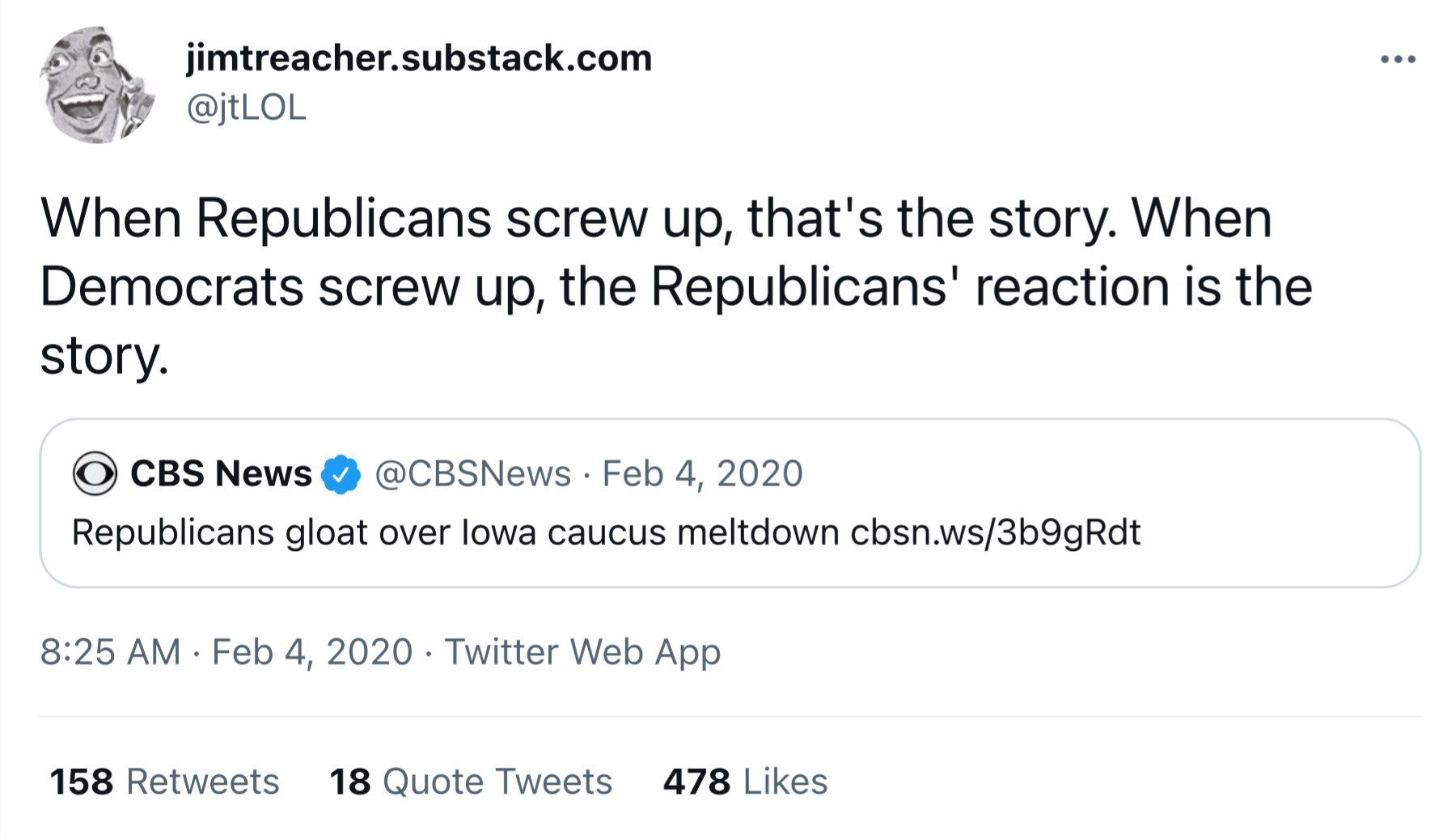TO BE FAIR, THAT’S THEIR JOB: The Media Shouldn’t Overlook Kamala Harris’ Plagiarism.
CNN’s report on the Harris plagiarism accusation is headlined: “Conservative activist accuses Harris of plagiarizing passages in co-authored 2009 book.” Note that the identity of the accuser—of the plagiarism discoverer—was not at issue in the Melania Trump case. But here, mainstream media feels compelled to position Rufo rather than Harris at the center of the controversy.
Conservatives complain ceaselessly—and not without reason—that scandals involving Republicans, conservatives, and Trump world personalities are reported in straightforward fashion, whereas scandals involving Democrats, liberals, and the media itself are not. In these latter cases, the media focuses on the motivations, agendas, and responses of conservatives who are involved in surfacing the controversy. This is often done, in headlines, using the exact phrasing Republicans pounce on X or Republicans seize on X, where X is the thing Democrats did wrong.
This is such a well-worn trope by now the one might have expected mainstream media institutions to take greater pains to avoid it, if only to deprive conservatives of ammunition. And yet The New York Times write-up of the Harris plagiarism accusations is headlined: “Conservative Activist Seizes on Passages From Harris Book.”
The article itself minimizes the extent of Harris’ wrongdoing, and cites a plagiarism expert, Jonathan Bailey, who claims that Rufo was “making a big deal” out of relatively minor transgressions. The Times did not share with him the full list of plagiarized passages in the book, however; on his website, Bailey noted that after reviewing all the allegations, the case is “more serious” than he first thought, although he maintains Harris did not engage in “wholesale fraud.”
It’s perfectly fine for journalists to report on the agendas of conservative activists making such claims; Rufo does not deny that he is politically motivated; on the contrary, he constantly explains his agenda, and strategy for implementing it, in posts on X. But perhaps The New York Times might consider whether the pouncing and the seizing are the most important parts of this story.
From their point of view, invariably it is:

